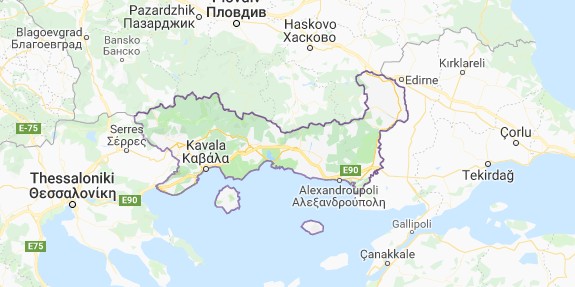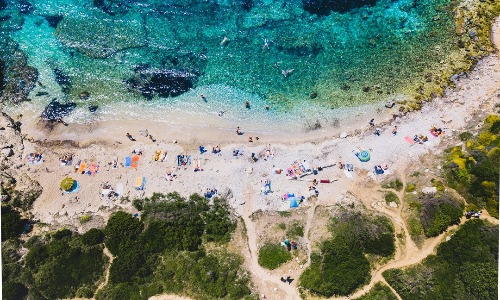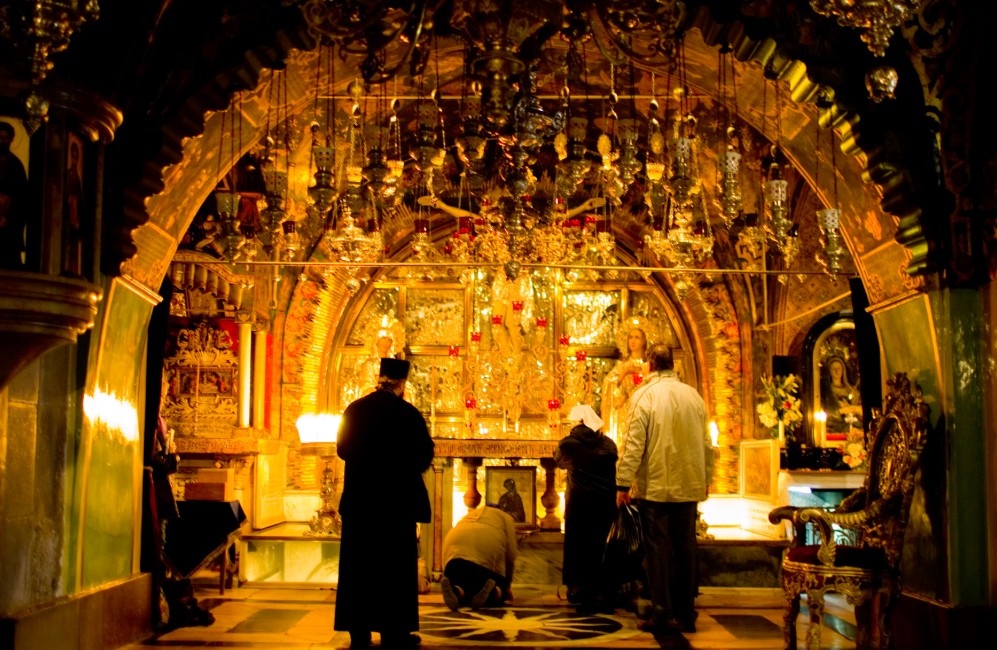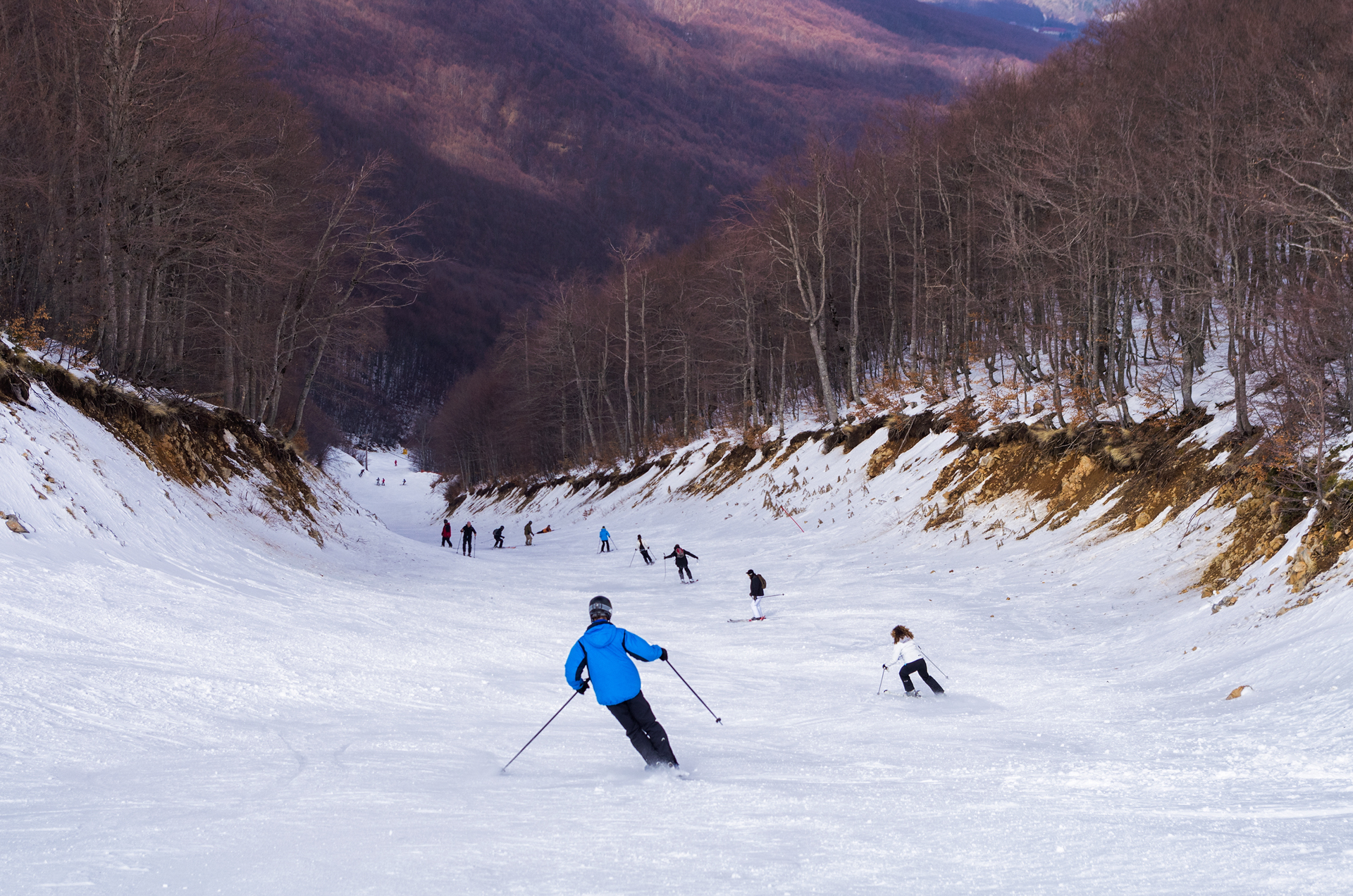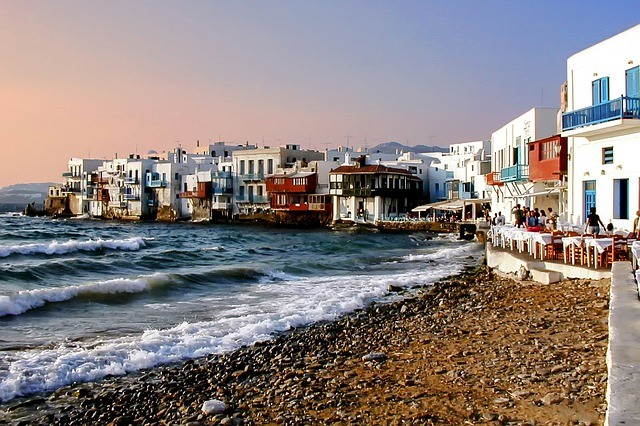Health: Medical training standards are high in Greece , but due to government under funding, some hospitals are not as good hospitals in other countries. Private hospitals are more expensive, therefore the need for good travel insurance. One of the main problems for tourists is the heat, heat exhaustion and dehydration (aggravated by excessive alcohol) can be remedied by drinking non-alcoholic beverages and taking electrolyte tablets (a mixture of potassium salts and glucose.
However, severe heatstroke is serious, and medical attention is a priority. Jellyfish and sea urchins can cause discomfort, but the use vinegar or remedies from the local pharmacy can relieve the stings.
Another problem is the weaver fish, tough rarer; it buries itself in the sand at the waters edge, with only its spines showing. Standing on these spines causes great discomfort, the remedy is to place the foot in very hot water to break down the poison followed by medical attention.
Greece has only one dangerous snake the adder, Though not fatal, keep the victim calm wrap the limb tightly as you would do for a sprained ankle and seek medical attention, do not tie tourniquets or attempt to suck out the poison. The tying of tourniquets is dangerous can cause more damage than good, as to sucking out venom that only happens in films.
A basic first aid kit, with items suitable for the trip is a good investment when travelling, even to the beach or countryside. The use of high factor sun blocks is essential especially for children, sun hats and sunglasses are essential, as is calamine lotion that is soothing if you do happen to get sunburnt.
Bottled water is the safest to drink, tap water is safe to drink but in rural areas check with the locals. Pharmacies offer very good service, and offer medication and help not usually found in some European countries. Emergency telephone numbers are Ambulance tlf.166, Police tlf.100, Fire tlf.199.
Rail Travel: In Greece , rail travel is limited to services that go to the major towns on the mainland. You can choose from two types of rail travel in Greece , the express (intercity) trains, are an excellent way to travel with modern and comfortable trains. The slower and cheaper trains, which stop at every station on route, are an alternative for those on a limited budget. Train passes, can be bought at stations if you intend to travel by train a lot. More information on rail travel in Greece is on the web site for The Hellenic Railways Organisation, www.ose.gr.
Air travel: Domestic flights from Athens , to other cities and the islands are extensive. The main carrier is Olympic Airways, and its sister company Olympic Aviation. Information about domestic flights, visit Athens international airport web site. www.aia.gr. Aegean Airlines, based on the island of Crete , offers flights to the mainland and other Greek islands. Information on flights and prices is on their web site. www.aegeanair.com.
Sea Travel: Greece ’s ferry services are also extensive, these ferries not only serve to transport tourists to their destinations, are also the lifeline for the islands that use them to transport their goods to the mainland. Pireaus ( Athens ) is the largest and busiest port in Greece , ferries go from here to the Dodecanese , Cyclades and the North-eastern Aegean Islands . Ferries serve also the Saronic Gulf Islands and Crete . Rafina the second port, east of Athens , serves the Islands of Evia, Lesvos , Limnos and the northern Cyclades . The port of Lavrio in southern Attica serves the island of Kea . The ports in the Peloponnese region of Greece , serve the Ionioan Islands . Ferries to the Sporades , sail from Volos , Thessaloniki , Kymi and Agios Konstantinos. As well as ferries from the mainland to the islands, many inter- island ferries sail between the islands. Types of ferries range from large, long distance car-carrying ferries, catamarans to high-speed hydrofoils. The purchase of tickets can be made from the shipping line office, travel agents or on the ferries, if travelling by car reservations is necessary. It is important to check times, routes and departure points, as schedules alter owing to seasonal weather changes, or cancellations. Make sure you find the correct ticket office, as some ticket offices will not sell tickets or give information about rival shipping lines! Also, make sure your schedule allows for delays. The Internet site, www.greekferries.gr offers more information on ferries in Greece.
Cars and Motorbikes: Driving in Greece is expensive, with high-priced fuel and fares on inter-island ferries. Though many of the roads are being improved, many are still little more than gravel tracks. Greece has one of the highest records for road traffic deaths, many of these deaths occur by careless driving and overtaking. Driving while under the influence of alcohol or drugs will result in a heavy fine, and at the worst, imprisonment.
Bus: Greece has a well-organised bus service on the mainland, with connections between the major towns. Rural bus services to the outlying villages are mainly for the locals travelling to the nearest to shop, these may only run once or twice a week. On the islands, bus services tend to run from the ports and around the island, some of the smaller islands have not a proper bus and you may have to use a converted pickup truck. Travelling by bus gives you an insight into the normal day-to-day lives of the inhabitants. Ticket are reasonably priced, if travelling by bus, make sure you have plenty of time as buses sometimes depart before their scheduled time. Information on bus services and routes are on the internet, www.ktel.org.
Taxis: are reasonably priced if sharing, City taxis (yellow) have meters but there are surcharges for pickups from airports, stations also a surcharge for luggage over 10kg. Rural Taxis do not have meters, so one should agree on the fare before entering the taxi this may lead to heated discussions. Do not think they treat tourists differently, the locals get the same treatment, if you have any complaints about the taxi driver, note the number of the taxi and contact the tourist police Tlf.171. Taxi drivers in Greece are normally friendly and helpful.
Metro: Athens is the only city in Greece that is large enough to accommodate a subway system, though mainly confined to the city centre it is a good and quick alternative for travelling around the city.
Car and Motorbike Hire: Hiring a car or motorbike is not a problem if you have the correct valid licence, hire rates can vary depending on size and type of vehicle and the season, the minimum age is 18 years old, to hire a vehicle, but on some vehicles, the agency may have a higher age limit. Make sure you sign and pay for a collision and theft waiver, check you own personal insurance to see if you are covered when driving hire cars or motorbikes abroad. Check the vehicle for any visible damage and that the lights and brakes work before driving away.
Hitchhiking: Like any other country in the world, hitchhiking can be fraught with danger. However, Greece is relativity safe. If you choose to hitchhike, do not travel alone, if you are a women have a companion, preferably a male and let someone, know where you are going. In rural areas with little traffic, drivers will stop and ask you if you need a lift, even if you are not hitchhiking. However, like your parents, we do not recommend hitchhiking.
DISABLED TRAVELLERS
Despite the fact that most places should be accessible to the disabled, though many hotels now do cater for the disabled traveller, careful planning and research is necessary. Accessibility to the ancient sites and some beaches are not wheelchair friendly due to the terrain and the lack of insight into the needs of disabled tourists. More information can be obtained from, Radar (Royal Association for Disability and Rehabilitation), 12 City Forum, 250 City Rd. London EC1V 8AF , England . ([email protected]). They publish a useful guide for disabled travellers in Europe .
ACCOMMODATION
Greece offers a wide range of accommodation from camping sites to luxury hotels. All room prices include vat and local taxes, a surcharge is added for the use of an extra bed in the room. Prices will vary due to the seasons with mid summer being the highest. The tourist police control the prices of accommodation, and a notice must hang in each room by law, stating the category and prices charged. If you have any problems with the owners about prices and services, though overcharging rarely occurs, contact the tourist police.
Hotels: Hotels are classified in to six categories, Deluxe, A, B, C, D and E. The first three are the best, with bars restaurants and en-suite bathrooms, the latter three vary in standard in respect to facilities offered, you may have to share bathrooms, and pay for hot water. Prices vary with the standard of hotels always check before booking .
Domatia: Once just a room in one of the locals houses, today there are more often than not a purpose built accommodation classified, in three categories A, B, C depending on the facilities offered. Staying in a domatia is an alternative for the budget conscience traveller. Some domatia owners on the islands often meet the ferries offering rooms to rent, before taking up the offer make sure of its location and standard, you could end up staying in an isolated area, where the main entertainment is talking to the donkey.
Private rentals: If you are planning on a longer stay in Greece , private rentals is an option, prices vary according to length of stay and season. The Athen News classified section lists those available in the Athens area.
Traditional buildings: Many of the once derelict historical buildings have been carefully restored, and converted into tourist accommodation. Though some are expensive, they offer good value and a relaxing environment.
Camping: Greece has many camping sites, some of them situated in splendid locations, many of them have excellent facilities, showers, kitchens, shops, restaurants and some have a swimming pool. Prices vary with the size of tent or caravan and season. Contact the, Panhellenic Camping Association (tlf/fax 2103 621 560; Solonos 102, Athens 106 80) who publish a yearly booklet listing camping sites.
Youth Hostels: The one and only youth hostel in Greece , affiliated to the International Youth Hostels Federation is in Athens , (tlf 2105 234 170; Viktoros Ougo 16, Athens ). The Greek Youth Hostel Organisation, runs hostels on the mainland and some of the islands, (tlf 2107 519 530; Damareos 75, Athens ) and you do not have to be a member to stay there.

